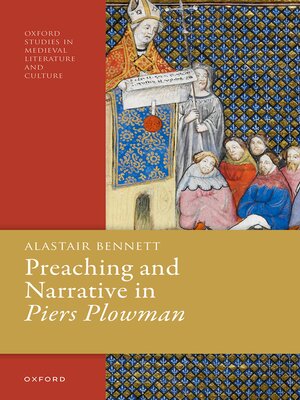Preaching and Narrative in Piers Plowman
ebook ∣ Oxford Studies in Medieval Literature and Culture
By Alastair Bennett

Sign up to save your library
With an OverDrive account, you can save your favorite libraries for at-a-glance information about availability. Find out more about OverDrive accounts.
Find this title in Libby, the library reading app by OverDrive.



Search for a digital library with this title
Title found at these libraries:
| Library Name | Distance |
|---|---|
| Loading... |
William Langland's Piers Plowman was written and read during a "golden age" of English preaching. The poem describes a world where sermons took many different forms and were delivered in many different contexts, from public events in the life of the realm to pastoral instruction in the parish. It dramatises preaching as part of its allegorical action, showing how sermons shaped their listeners' understanding of the world; it also includes polemical critique of corrupt, self-interested preaching, and offers radical prescriptions for its reform. This book argues that Langland's central insight into the way that sermons moved and engaged their audiences had to do with their characteristic use of narrative. Preachers in the poem address listeners who are absorbed in the concerns of their present moment, and encourage them to new forms of social and spiritual endeavour by locating that moment in a larger, interpreted plot: the story of an individual life, or an emergent community, or of salvation history as a whole. The book employs a critical vocabulary derived from Paul Ricoeur to describe the process by which these narratives are composed, and to show how they mediate and reconfigure their listeners' experiences.







